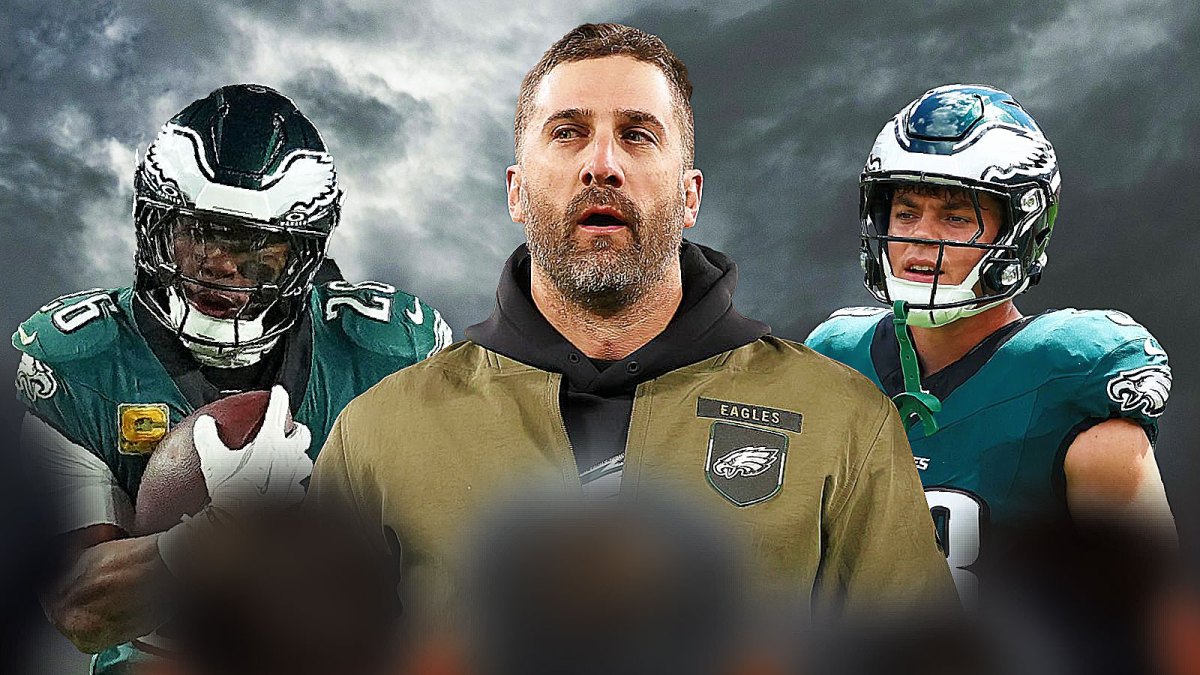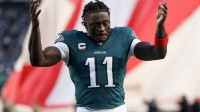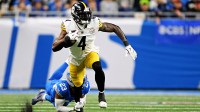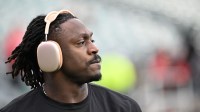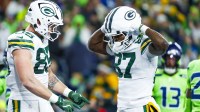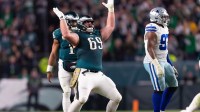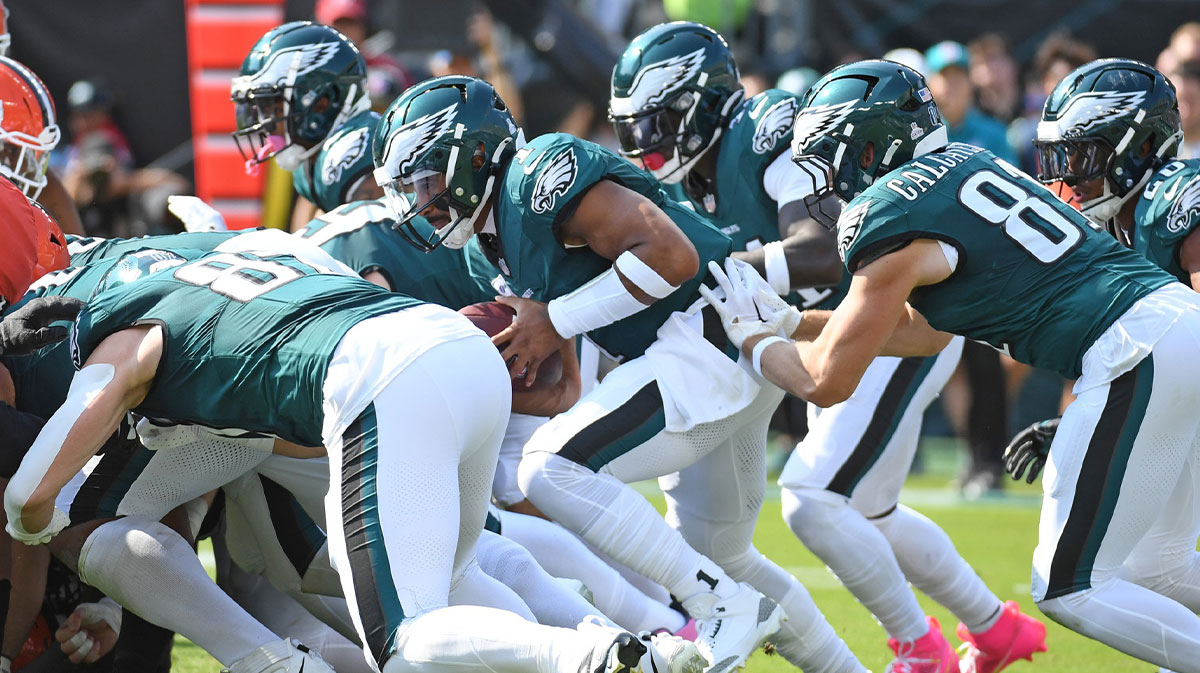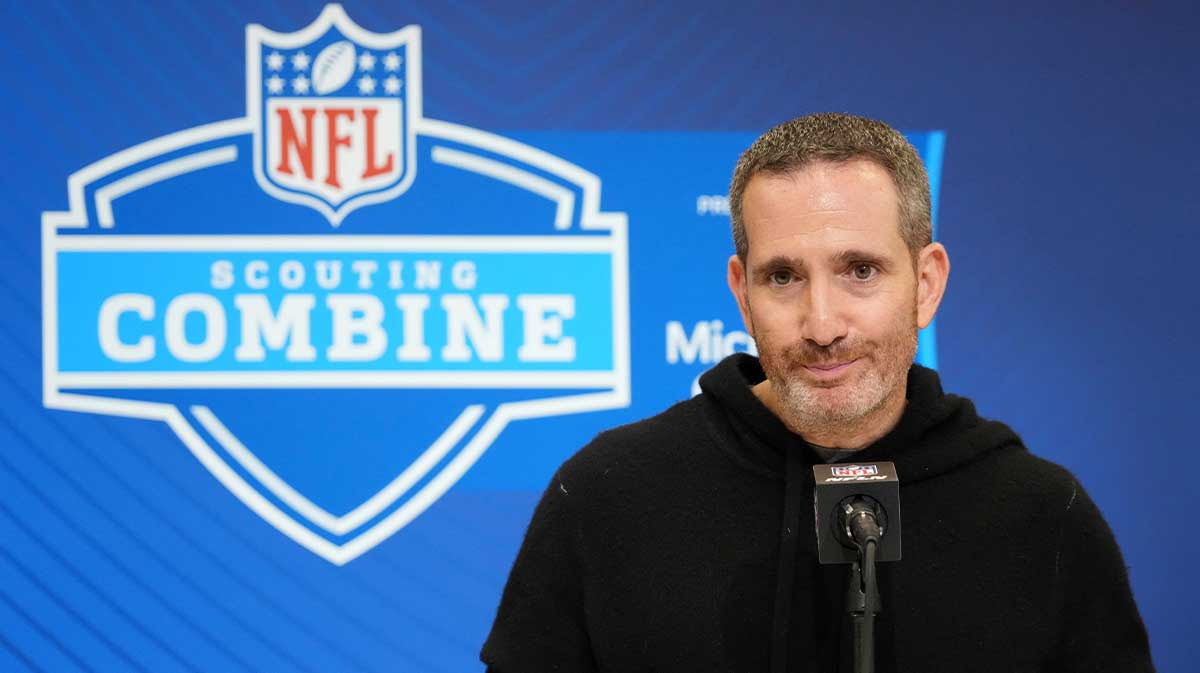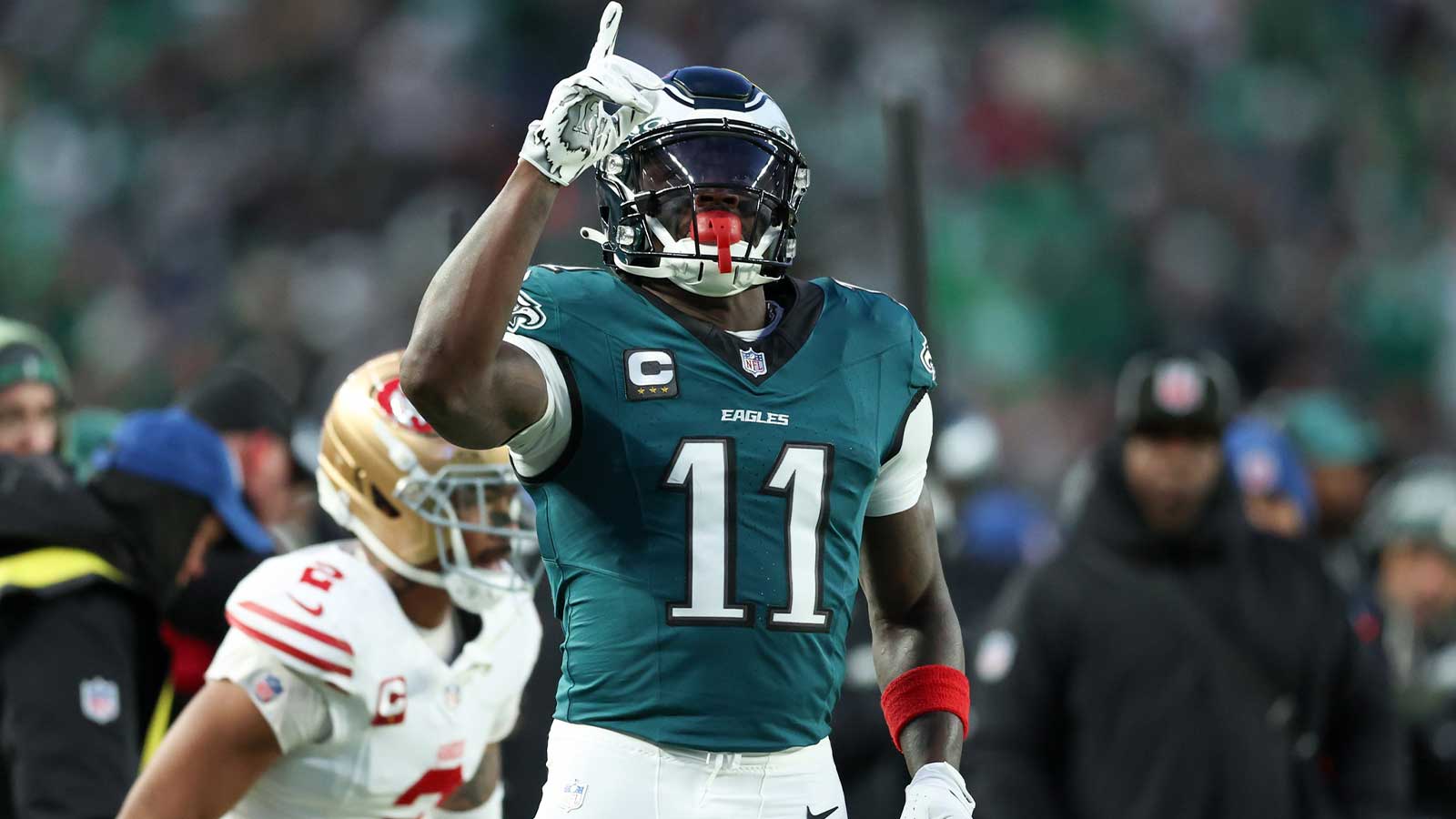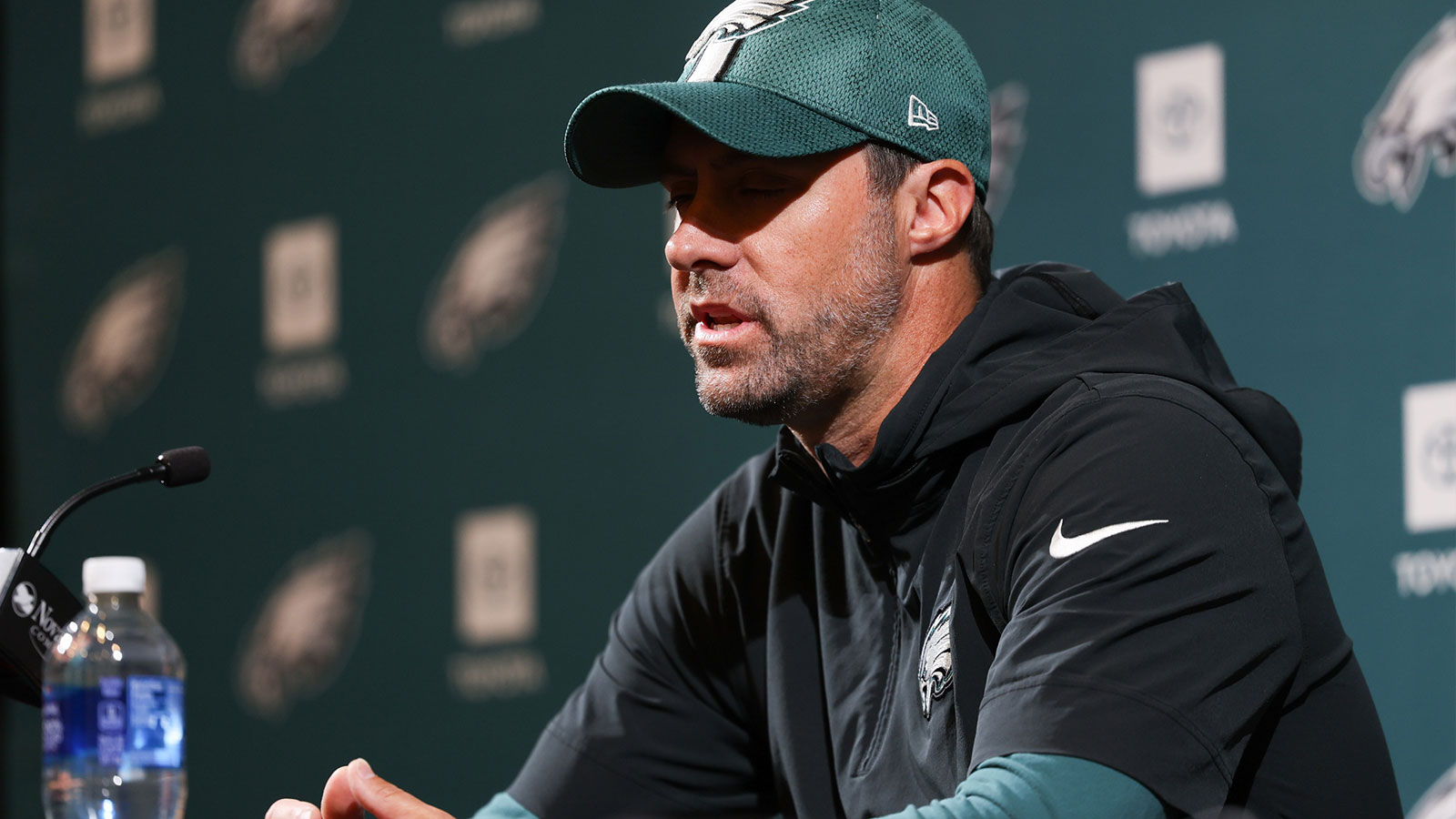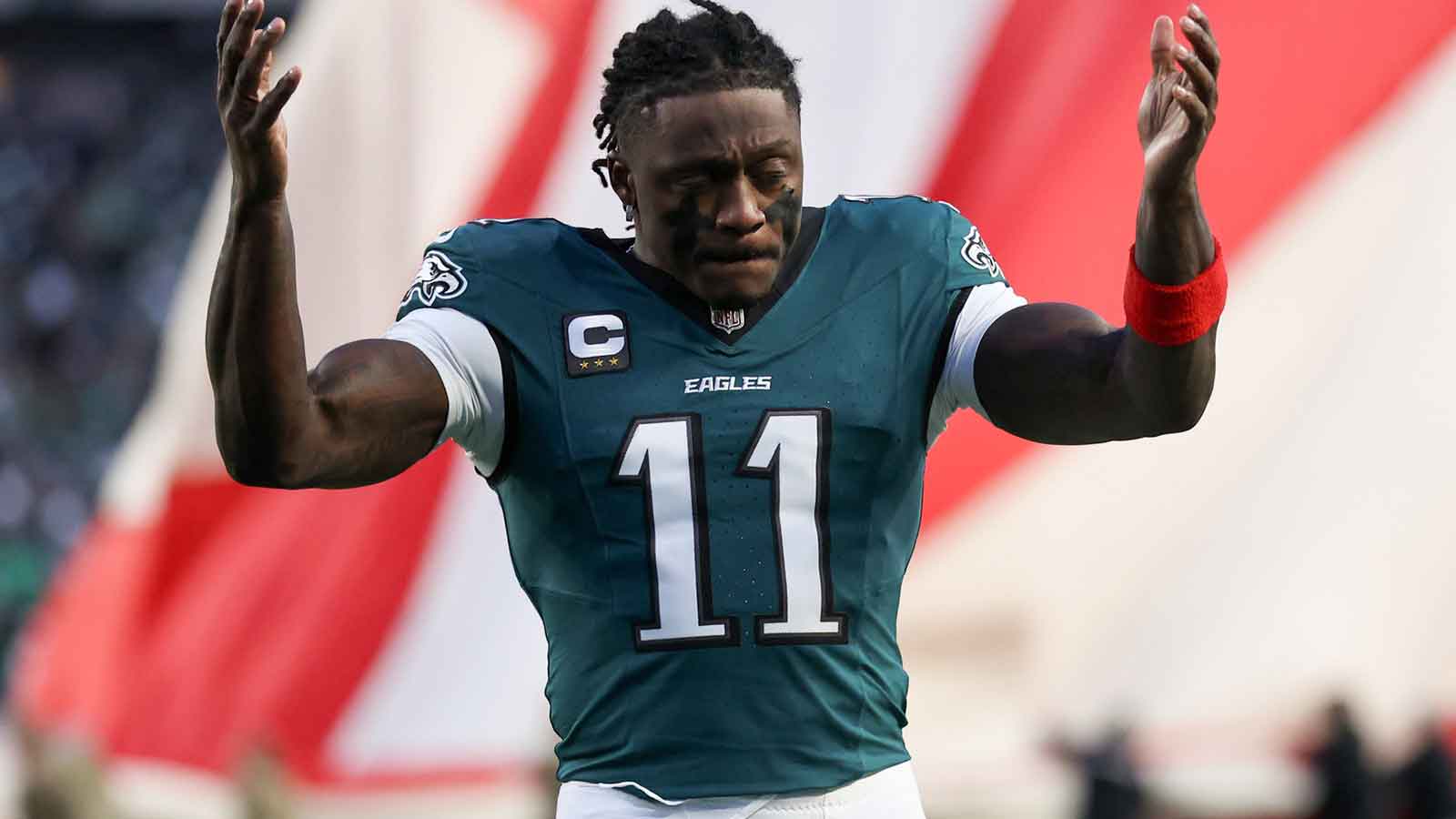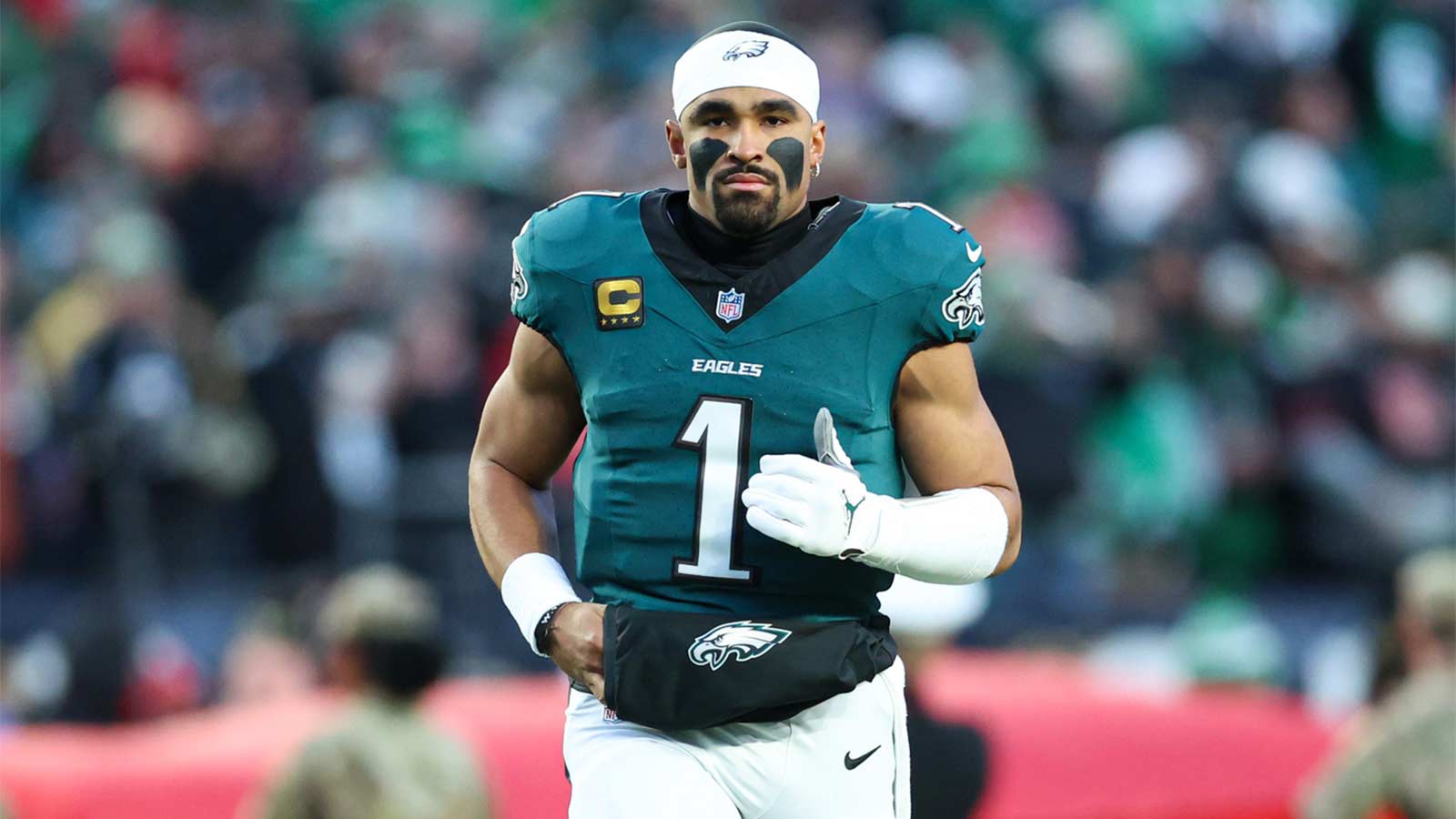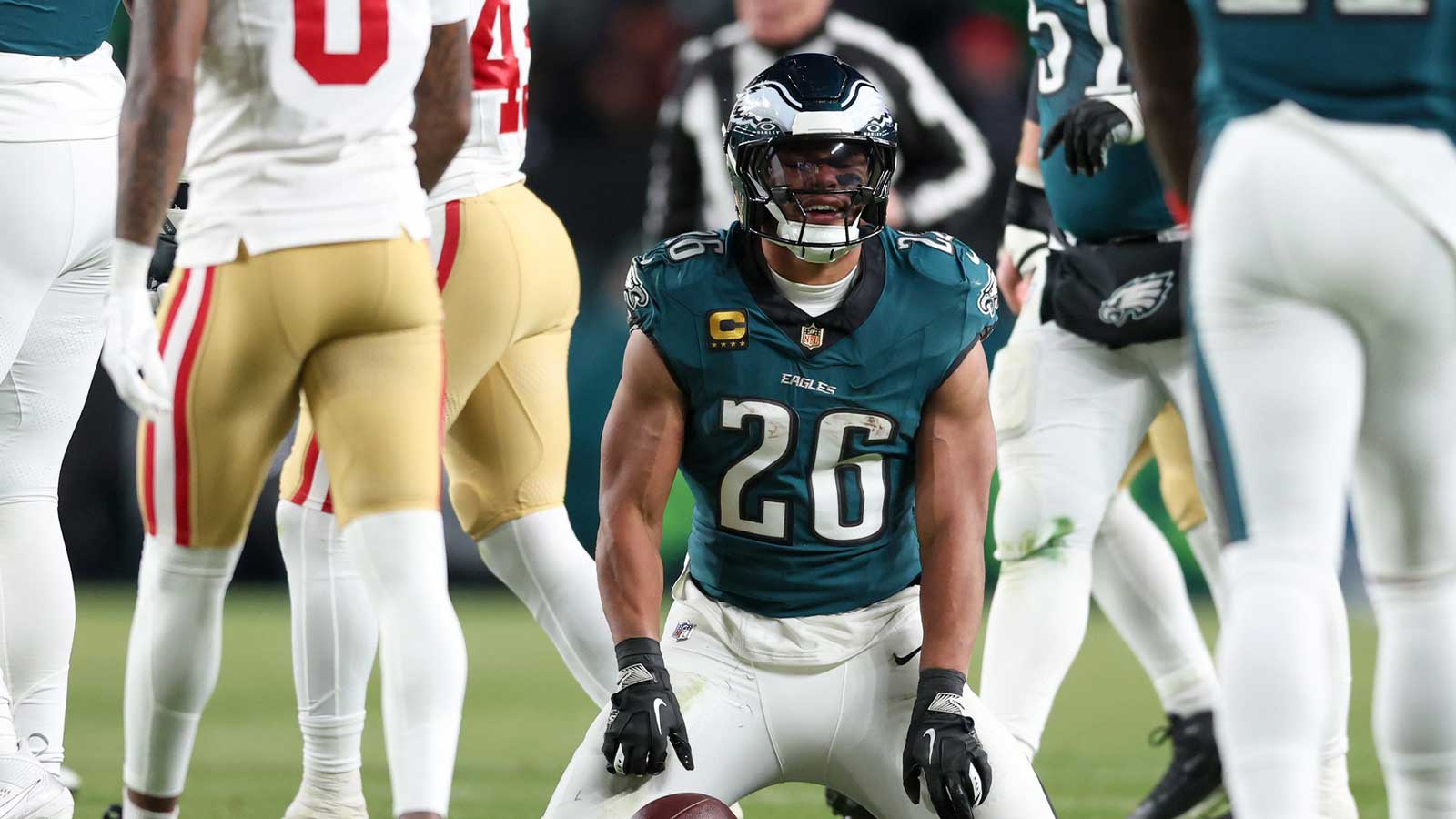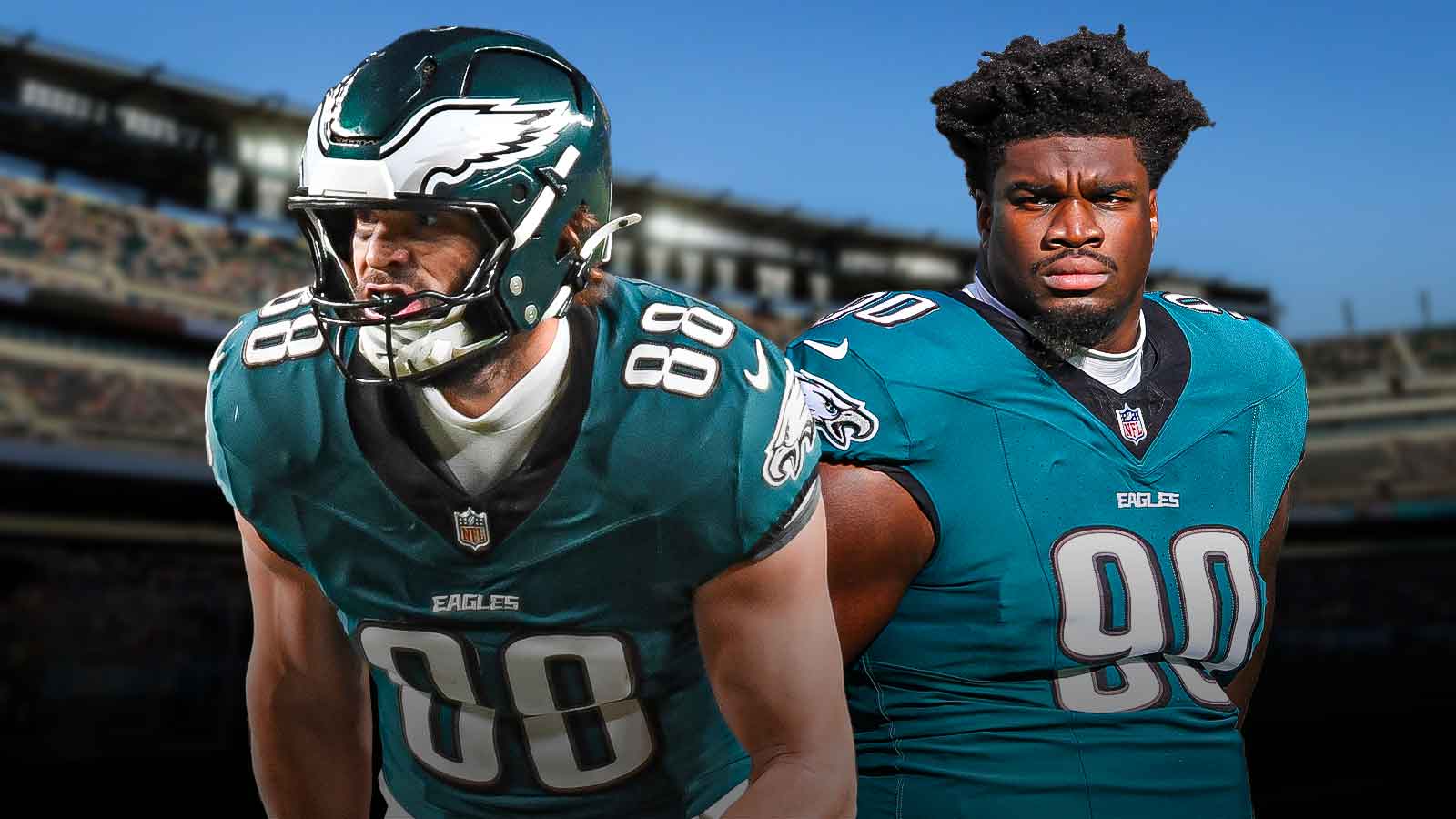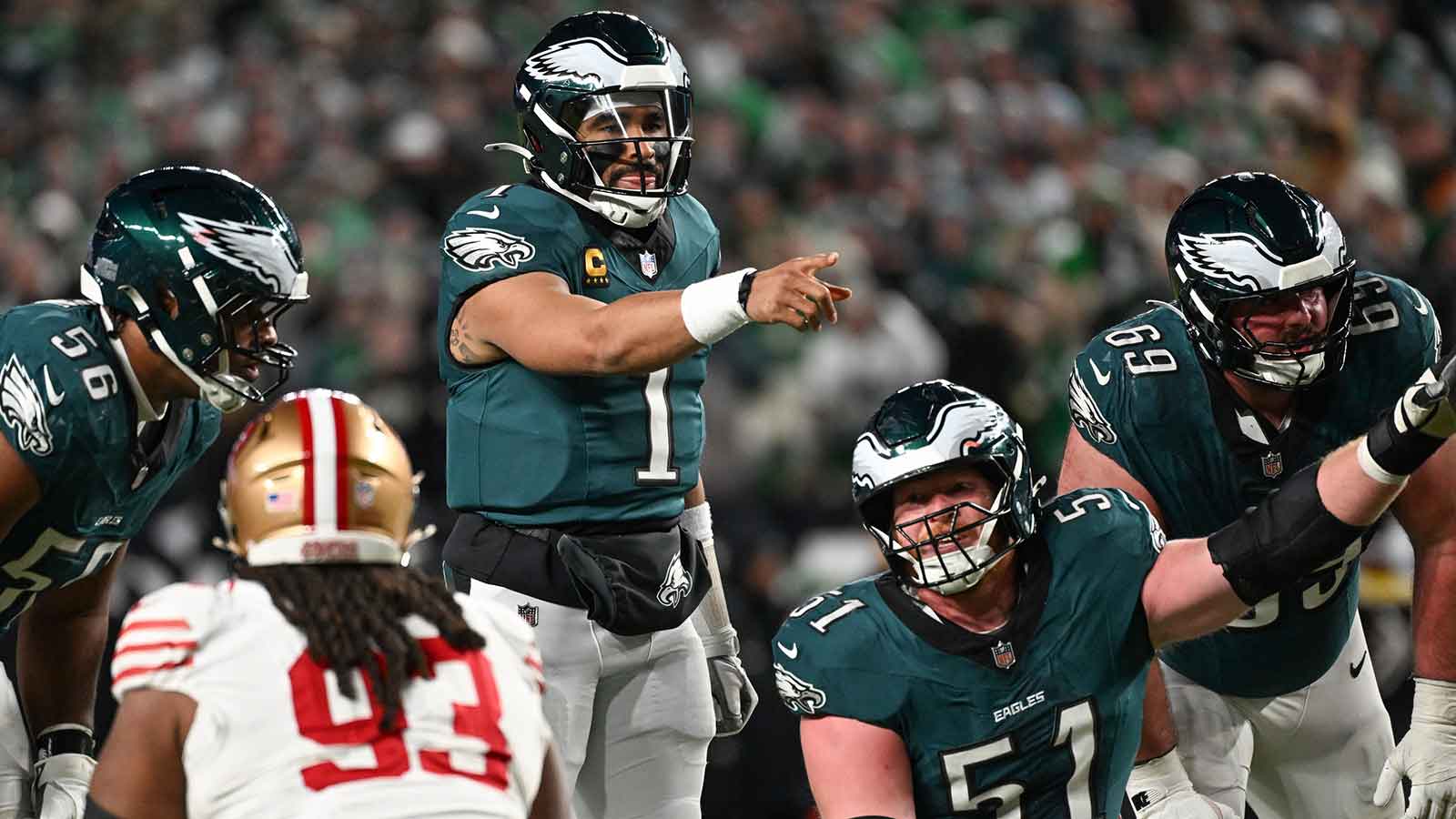There are bad losses and painful losses. And then there are the kinds of losses that leave a deep bruise on a team’s identity. What happened to the Philadelphia Eagles in Week 12 falls squarely in that last category. Up 21-0 with complete command at AT&T Stadium, the Eagles appeared ready to deliver a statement win over their most bitter NFC East rival. Instead, they suffered one of the most stunning collapses of the NFL season. The Eagles absorbed a 24-21 defeat to the Dallas Cowboys. Philadelphia went scoreless for the final 41 minutes while unraveling in spectacular fashion.
Monumental collapse
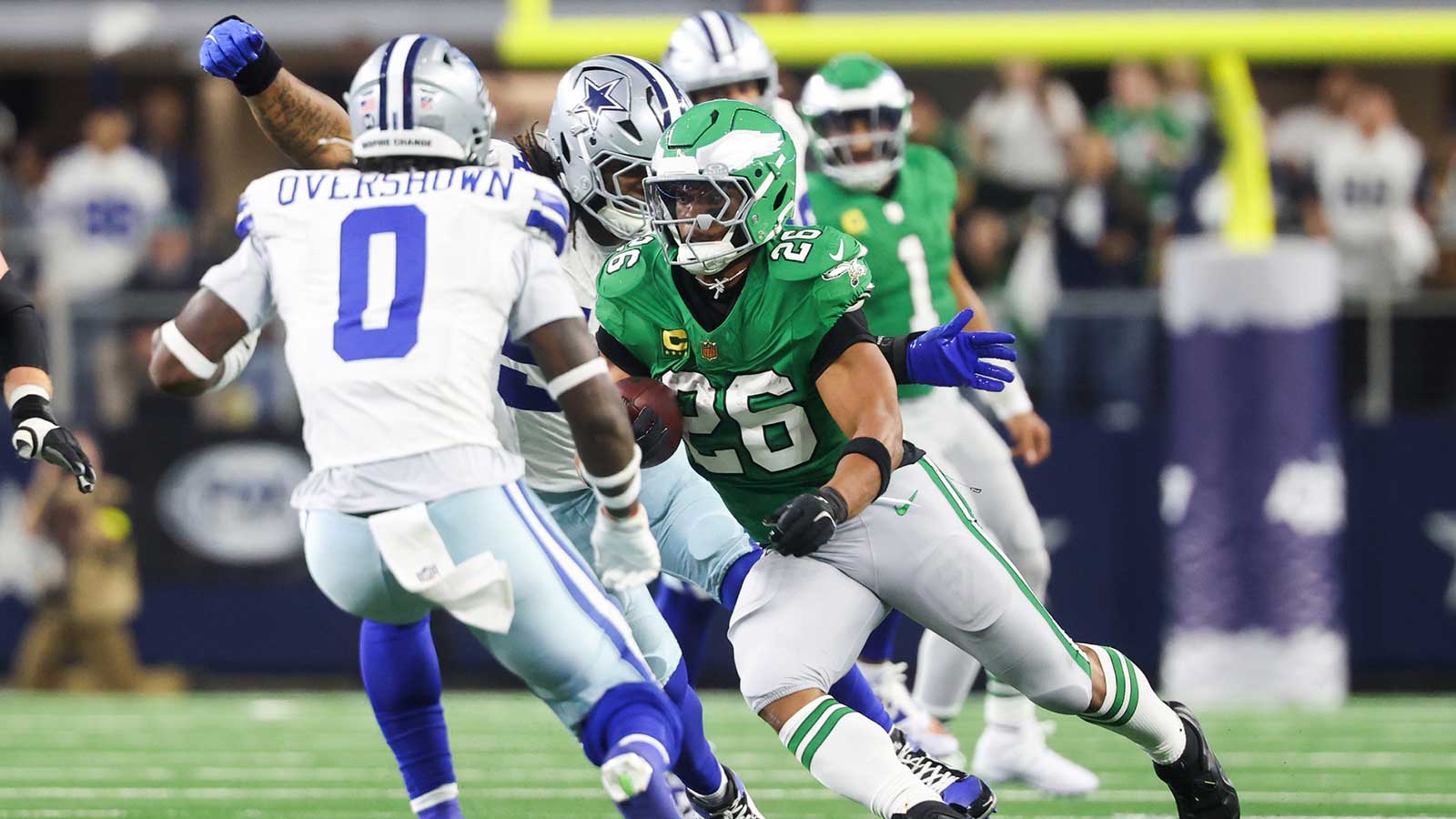
The offense froze, the defense softened, and the coaching staff made puzzling decisions at every turn. Philly had 14 penalties for 96 yards and a fourth-quarter fumble deep in Cowboys territory. The Eagles had a lifeless pass rush and a cornerback repeatedly exposed downfield. Their head coach also watched a three-touchdown lead turn to ash while his offense produced a drive chart that read like a warning label: punt, end of half, punt, punt, punt, missed field goal.
In the most important moments, the Eagles blinked. Meanwhile, the Cowboys completed a comeback few could’ve imagined with 11:32 still remaining in the first half. What should’ve been a signature win became a gut punch. This outcome now raises serious concerns about Philadelphia’s staying power in the NFC playoff race.
Here we'll try to look at and discuss the Eagles most to blame for embarrassing collapse in second half vs. Cowboys.
RB Saquon Barkley
Saquon Barkley’s 2025 season has been a rollercoaster. This game, though, took the downturn to a new level. Against Dallas, Barkley looked nothing like the explosive, decisive runner the Eagles expected when they committed to him as a cornerstone of their offense. He finished with 22 rushing yards on 10 carries, averaging only 2.2 yards per attempt. Barkley also rarely showed the burst fans associate with his most dynamic performances.
Sure, the offensive line deserves its fair share of blame for inconsistent run blocking. However, Barkley did little to elevate the unit. His touches felt predictable, and his ability to create after contact nearly nonexistent. Still, nothing defined his night more than the fourth-quarter fumble. That moment symbolized the shift in momentum and slammed the brakes on what could have been a game-sealing drive.
Barkley caught a checkdown in Cowboys territory with the Eagles clinging to a 21-14 lead. He turned upfield and was stripped by Sam Williams. It was a possession that should’ve ended in points. Instead, it put Dallas right back in position to complete their comeback.
The Eagles expect Barkley to change games. This time, he did, but in the wrong direction.
Pass rush
Two weeks ago, the Eagles’ front seven looked unstoppable. Against Dallas? They nearly vanished.
Philadelphia produced only one sack, courtesy of Nakobe Dean. They also logged just six quarterback hits all night. Worse, those hits didn’t come until well into the third quarter.
Dak Prescott had too much time, too many clean pockets, and too many chances to find CeeDee Lamb. The latter repeatedly torched the Eagles’ secondary downfield. Without consistent pressure, Prescott controlled the tempo. He extended plays and systematically erased the Eagles’ early lead.
Against an offense as precise and aggressive as Dallas’, a mediocre pass rush is a death sentence. On Sunday night, it was exactly that.
CB Cooper DeJean
Every collapse has a turning point. For Philadelphia, that moment came when Cooper DeJean got caught flat-footed on a deep shot to Lamb midway through the third quarter.
On third-and-five, Lamb blew past DeJean for a 48-yard gain. That set up a Cowboys touchdown, slicing the lead to 21-14. It was the first big warning sign that the Eagles couldn’t survive the second half with their secondary playing this way.
The issues didn’t stop there, though. Later, DeJean was outmuscled on a 43-yard reception by George Pickens after Jake Elliott’s missed field goal. Whether it was technique, positioning, or confidence, DeJean’s struggles became a glaring liability.
With the pass rush ineffective, DeJean was left on an island far too often. Not surprisingly, the Cowboys made him pay.
Coaching
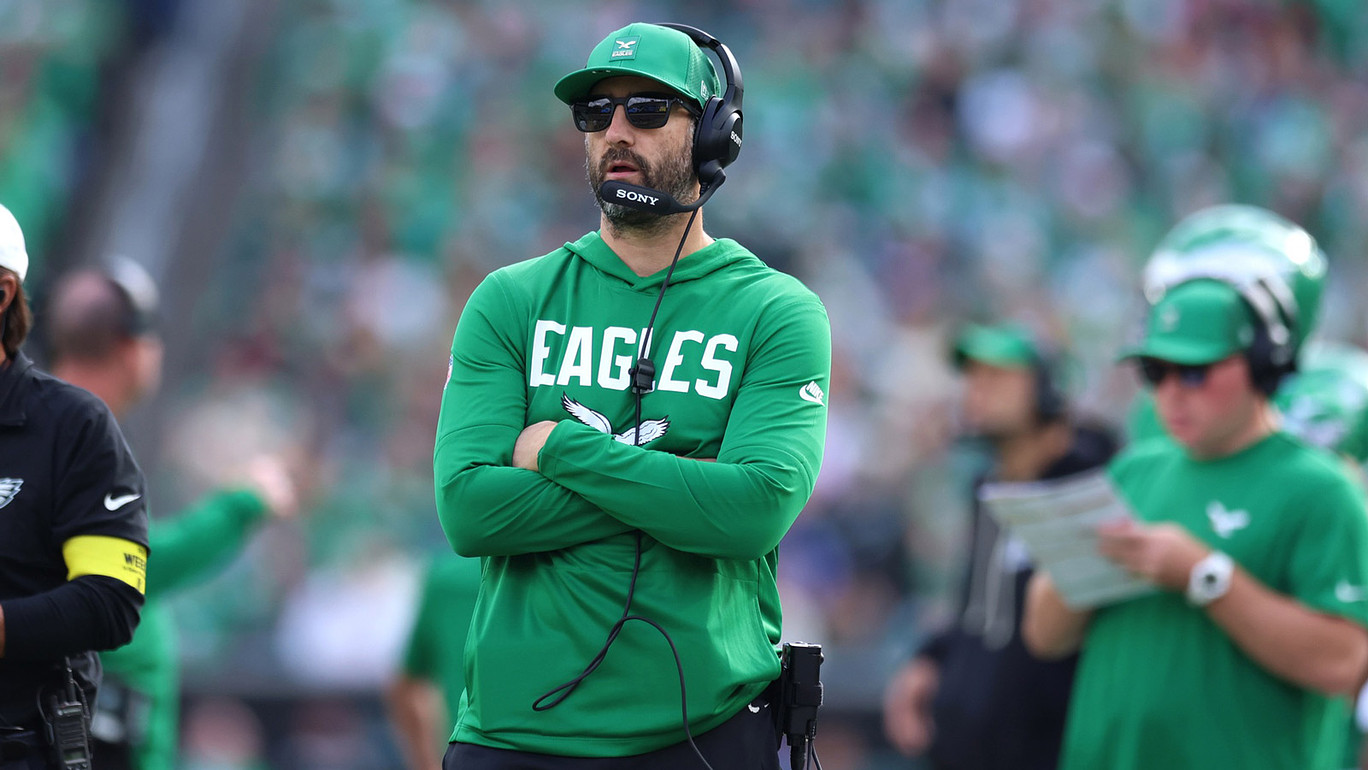
If fans want one place to direct their frustration, they won’t have to look far. Head coach Nick Sirianni and offensive coordinator Kevin Patullo had arguably their worst combined performance of the season.
After jumping out to a 21-0 lead, the play-calling flipped. It turned from aggressive and creative to conservative and predictable. The Eagles stopped attacking, stopped pushing the ball downfield, and stopped playing with confidence.
Meanwhile, undisciplined play gave Dallas free life drive after drive. The Eagles tallied 14 penalties worth nearly 100 yards.
Two decisions stood out as especially costly:
Choosing not to push for more points at the end of the first half.
Asking Elliott to attempt a 56-yard field goal in the fourth quarter rather than sustaining a drive.
Both choices demonstrated hesitation. That's deadly against a team that thrives on momentum like the Cowboys. Losing a 21-point lead is always, in part, a coaching failure. On Sunday, it was the biggest one.
Serious soul-searching
The Eagles are still 8-3. They remain in a position to contend for the NFC East. Of course this team is still loaded with talent. That said, Week 12 showed just how quickly things can fall apart when discipline, execution, and coaching evaporate at once.
Saquon Barkley struggled, and the pass rush disappeared. The secondary cracked, and the coaching staff got outplayed.
If the Eagles want their season to stay on track, they need answers immediately.

